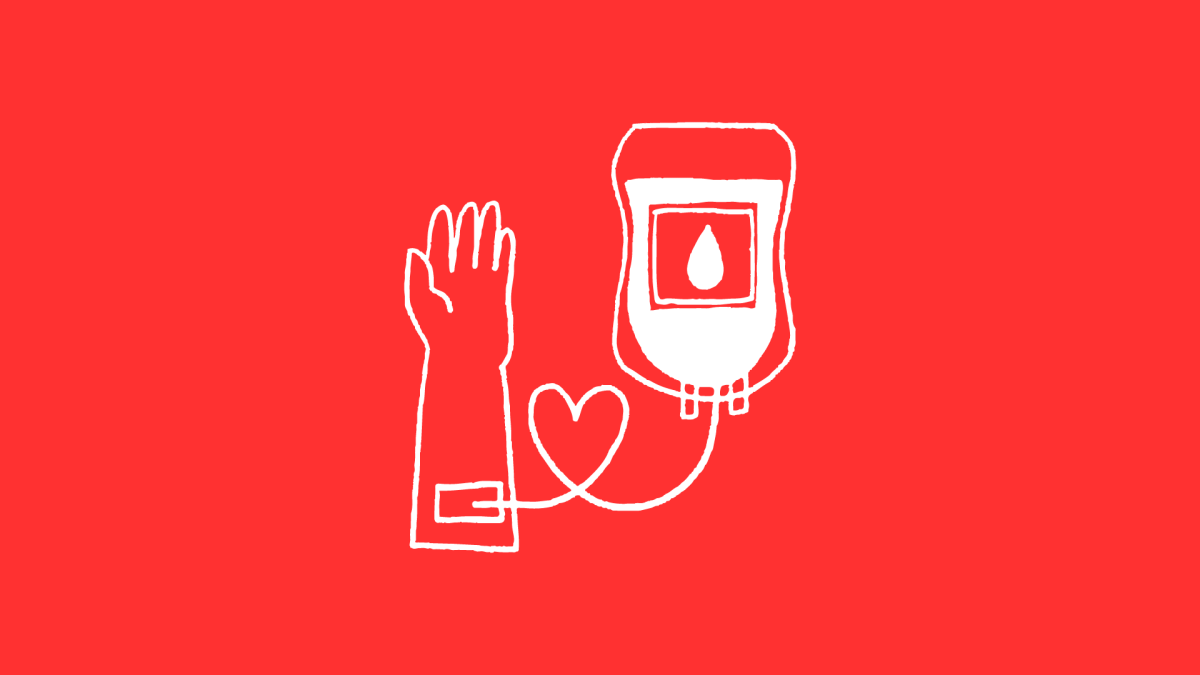Amidst a national blood donation shortage, the Brooklyn Tech community has combatted the crisis by hosting blood drives and educating fellow members on blood donations.
On January 8th, 2024, the American Red Cross reported that blood donations had fallen 40%, reaching its all-time low in 20 years. Although the COVID-19 pandemic caused a spike in hospitals needing blood donations, the blood supply could not keep up with the demand. Rather than an increase in blood donations, the organization stated there have been 300,000 fewer blood donors nationwide since the pandemic. Other factors such as winter-correlated accidents and requirements for donating blood also contribute to the decline in donations.
Tech’s Biology Department began hosting biannual blood drives in December and April after students demonstrated interest in the 2015-2016 academic year. Students in the Biological Science and LIU Advanced Health Professions majors and Gateway to Higher Education Program, a program that prepares low-income and minority students interested in the healthcare field, coordinate these events with Tech staff. Dr. Sarah Hannaford, Tech’s previous Gateway to Higher Education Program Coordinator and prior AP Psychology teacher, expressed that the “blood drives are a good opportunity to allow students to have the opportunity to give blood and also assist with organizing a large-scale event.” The new Coordinator will be Forensics and Genetics teacher Mr. Sean McCaffery.

Software Engineering major Sikder Sakhawat (‘24) was curious about the blood donation process before he participated in the December blood drive, but he knew he “wanted to help others with their health, and this opportunity allowed [him] to do so.” Following the blood drive, he decided that he would “definitely do it [donating blood] again in April because it was an eye-opening experience.”
On December 21, 2023, Dr. Hannaford hosted Tech’s blood drive with students from the Gateway Program, Biological Sciences major, and LIU Advanced Health major. Tech collected approximately 40 pints of blood from 45 donors. Dr. Hannaford explained that “once the blood donations are divided into its three components [consisting of] red cells, platelets, plasma, these blood donations will help save the lives of 120 patients in local hospitals.”
Although the December blood drive was successful, some factors discouraged students from donating blood. Software Engineering major Dariya Beksultan (‘24), the Co-Secretary of the BTHS Red Cross chapter, stated that they “did not have many members donate blood [during] this [December] blood drive because of the requirements.”
Tech blood drives require students to fill out a health history form, sign and notarize consent forms, be cleared by a phlebotomist, a medical professional who draws blood, and weigh at least 100 pounds. Beksultan explained that “many of the members are under 16 years old” so the “process becomes tedious because they have to sign consent forms and get them notarized, which puts many people off.” There is a weight requirement “which some people are unable to meet even if they are willing to donate,” she added.
While she understands that not everyone can donate blood, she stressed that the lack of people donating blood makes it more significant for those who can.
The false information circulating about blood drives is another factor preventing more people from donating blood. Dr. Hannaford believes that “many students are concerned that it is Tech staff that will be collecting the blood” but the truth is that “only trained phlebotomists can collect blood.” She stated that the NY Blood Center is the agency in charge of the FDA-regulated blood drives.
LIU PharmD major Eason Fan (‘25), participated in the December blood drive during his lunch period and attested to the safety of the blood drives. “The staff were very professional, helpful, and made sure I understood every step of the process,” he said.
Besides the Biology Department hosting blood drives, the BTHS Red Cross has raised awareness by organizing blood donation-orientated events. Although the chapter focuses more on International Humanitarian Law (IHL), the executive board has educated members on the significance of blood donations by hosting a virtual Red Cross and Medicine Connections Panel last school year. After the American Red Cross declared a national blood shortage in 2021, the BTHS Red Cross collaborated with the New York Blood Center to organize a blood drive at the Kimisis Tis Theotokou Greek Orthodox Church in Brooklyn.
To encourage more blood donations, the Tech administration recognizes senior donors who donated twice with special red tassels at graduation. Sakhawat “love[s] the incentive with the graduation tassel that the school provides because it rewards students for accomplishing the difficult and risky task [of donating blood].”
Beksultan explained that the BTHS Red Cross’ Executive Board also incentivizes members to donate blood by “offering club points and volunteer hours [every year].”
To further increase the number of blood donors at Tech, Fan proposed that the National Honor Society (NHS), Student Government Organization (SGO), and the Tech administration should “provide more rewards to those who donate blood” in the form of “NHS points and service hours.” He noted that recognizing blood donors by “hanging a thank you poster listing the names of everyone who donated blood in the building” could encourage people to participate.
Students can also contribute to the cause by educating themselves on blood drives to take action. Initially, Sakhawat was “unaware of the way [he] could take part in providing aid… but after educating [himself] on the importance of providing blood to those who need it, [he] knew he had to take part in this donation.”
Beksultan added that students also “can go to their local blood drives and donate as much as they can throughout the year.” Biological and Sciences major Becky Tam (‘24) said she started donating blood at a local drive because of her sister who informed her of the significance of blood donations after donating blood at her school. “We are always in a blood shortage so donating blood could help a lot of people, especially with certain blood types, such as O negative,” said Tam. Even though only 7% of the population have the O-negative blood type, it is the most in-demand because it is the universal blood donor, meaning people with other blood types can receive O-negative blood.
With the blood supply running short, the American Red Cross is now reaching out to more people to donate blood. Whether inside or outside of school, people can make a difference by spreading the word, educating others, and donating blood.
“The best way to have a significant impact is by donating blood,” explained Software Engineering major Wafa Berri (‘24), the President of BTHS Red Cross “It is such a direct way to save lives, so we should all take advantage of it. Being in New York City, there’s always a blood drive happening somewhere near us, leaving us with many opportunities to donate.”








































